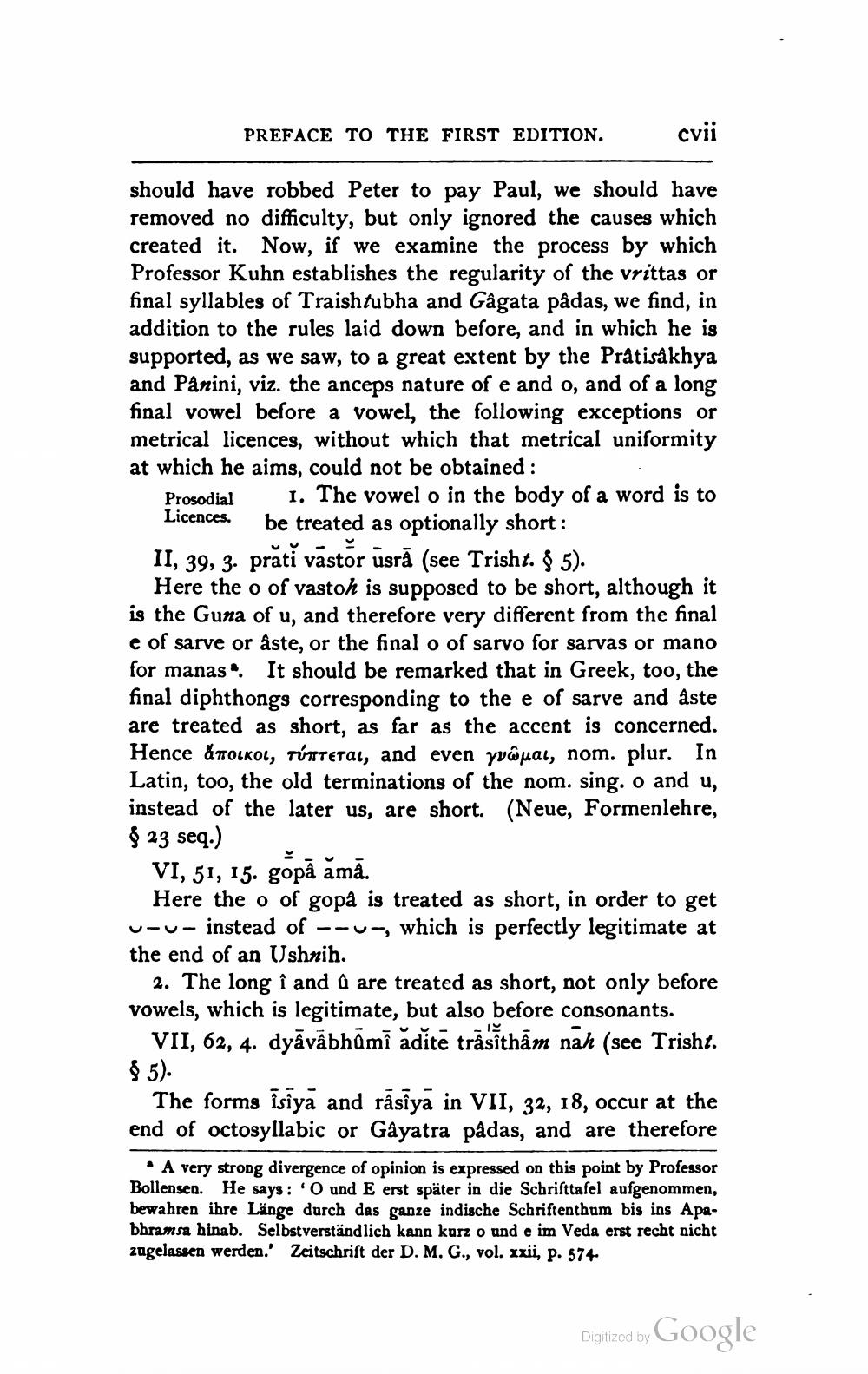________________
cvii
should have robbed Peter to pay Paul, we should have removed no difficulty, but only ignored the causes which created it. Now, if we examine the process by which Professor Kuhn establishes the regularity of the vrittas or final syllables of Traishtubha and Gâgata pâdas, we find, in addition to the rules laid down before, and in which he is supported, as we saw, to a great extent by the Prâtisâkhya and Pânini, viz. the anceps nature of e and o, and of a long final vowel before a vowel, the following exceptions or metrical licences, without which that metrical uniformity at which he aims, could not be obtained:
Prosodial
1. The vowel o in the body of a word is to Licences. be treated as optionally short:
PREFACE TO THE FIRST EDITION.
II, 39, 3. prati vastor usra (see Trisht. § 5).
Here the o of vastoh is supposed to be short, although it is the Guna of u, and therefore very different from the final e of sarve or âste, or the final o of sarvo for sarvas or mano for manas". It should be remarked that in Greek, too, the final diphthongs corresponding to the e of sarve and âste are treated as short, as far as the accent is concerned. Hence ἄποικοι, τύπτεται, and even γνῶμαι, nom. plur. In Latin, too, the old terminations of the nom. sing. o and u, instead of the later us, are short. (Neue, Formenlehre, § 23 seq.)
VI, 51, 15. gopa amā.
Here the o of gopâ is treated as short, in order to get - instead of ---, which is perfectly legitimate at
the end of an Ushnih.
2. The long î and û are treated as short, not only before vowels, which is legitimate, but also before consonants. VII, 62, 4. dyāvābhāmī adite trâsîthâm nah (see Trisht. § 5).
צו .
The forms isiya and râsîya in VII, 32, 18, occur at the end of octosyllabic or Gâyatra pâdas, and are therefore
* A very strong divergence of opinion is expressed on this point by Professor Bollensen. He says: 'O und E erst später in die Schrifttafel aufgenommen, bewahren ihre Länge durch das ganze indische Schriftenthum bis ins Apabhramsa hinab. Selbstverständlich kann kurz o und e im Veda erst recht nicht zugelassen werden.' Zeitschrift der D. M. G., vol. xxii, p. 574.
Digitized by Google




